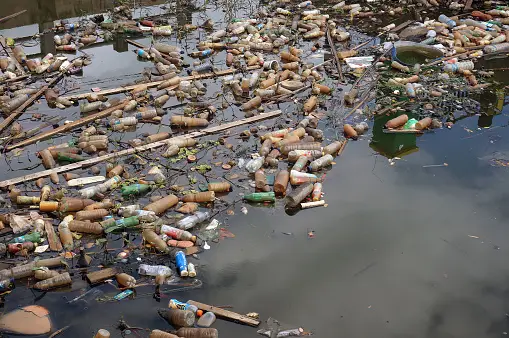BIRGUNJ, MARCH 21: The Sirsiya River, once a vital resource for the people of Birgunj, has now become a symbol of environmental decay due to escalating pollution. For years, it served as a source of water, but the industrial activities along the Parsa-Bara area have led to the discharge of pollutants into its waters through drainpipes, resulting in an intolerable stench, as reported by locals.
In recent years, the river has ceased to flow and instead accumulated sludge and slime. Krishna Kumar Kanu from Chapkaiya of Birgunj reminisces, “We used to bathe in the Sirsiya River, wash clothes, and dishes on its banks, but… it has become difficult to even stay near the river due to the horrendous smell.”
The industries responsible for polluting the river have largely evaded legal action, causing concern among residents of two dozen villages and Birgunj city, who are now facing the prospect of displacement due to the contaminated water source. Subash Mahato from Birgunj Metropolis-9 expresses remorse, stating, “We used to swim in the Sirsiya River during our childhood. Now, it has transformed into a cesspool of sludge, emitting a foul stench in the surroundings.”
Furthermore, the Sirsiya River has lost its religious and cultural significance. Once considered a holy place for celebrating festivals like Chhath, it has now become synonymous with pollution. Mahato laments the lack of interest shown by elected representatives in addressing this severe environmental crisis.
The pollution has also affected agriculture, with people discontinuing vegetable farming, and aquatic life has suffered as well, with animals and plants disappearing from the river.
Originating from Ramban in west Simara, Bara, the Sirsiya River flows to Raxaul, India via Birgunj, Parsa. Waste from various industries, including hide, distillery, textile, ghee, and soap, is indiscriminately dumped into the river, exacerbating the pollution.
Villages along the river corridor, such as Simara, Bakuliya, Lohusanda, Ramuli, Sagardina, Rampur Tokani, Chhatapipara, Nitanpur, Gamhargawa, Behara, Baluwa, Sirsiya, Tajpur, Bhaluwi, Ramgadhwa, Parwanipur, Ramban, Ramgadhwa, Bindabasini, Ranighat, Ashokbatika, and Chapkaiya, are the most affected by the pollution.
Thirteen years ago, locals protested outside the district administration office over the deteriorating condition of the Sirsiya River, prompting the formation of a river monitoring committee. Despite their efforts, industries along the riverbank continue to contribute to the pollution problem.
Assistant Chief District Officer Shiva Prasad Lamsal has pledged to address the issue, but the affected villagers await environmental justice, hoping that the authorities will take decisive action to mitigate the crisis















